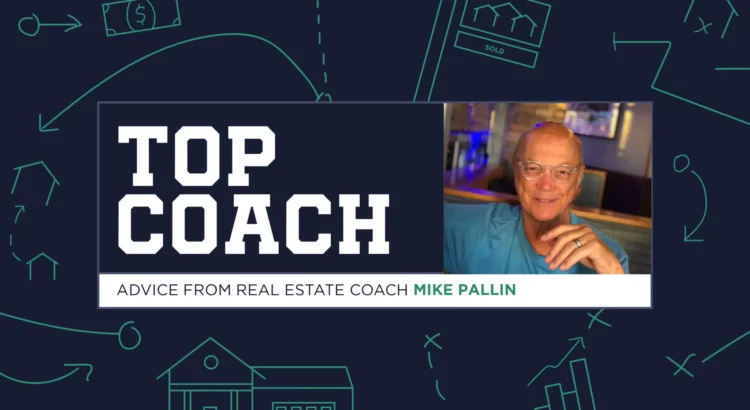By Mike Pallin
You need a great pricing dialogue in this market. Relying on a stack of comps in a pretty binder doesn’t make much sense. Many agents will give prospects a price over the phone or send them comps. That doesn’t work either.
Instead, what if you added three simple questions to your pricing presentation that will help you get the home priced right when you are at the listing appointment?
First, a couple of quick pricing DO’s and DON’Ts.
Do your market research, but keep it in reserve unless you need it to answer a question or substantiate the price you suggest. Though you’ve invested time and effort in market research, too much detail will only create confusion and get your presentation off track.
Don’t talk specifics until you know first that they are sold on listing with you and your company. If they don’t believe you can get the job done, why would they believe your opinion on price? They need to know why so many people choose your company, what makes your marketing powerful and why you are the best agent for them. That has to happen before a discussion of price.
So, what are the three questions?
The first one is, “If we could agree on a price, would there be anything preventing you from letting me handle things for you?”
There is a sound psychological principle behind this question, whatever words you use. Asking for the listing, subject to agreeing on price, lets you know how well you have connected in the “like and trust” department. If the answer is “no” it’s time to talk price.
Chances are your prospects have heard all kinds of promises about a quick and easy sale outside of the traditional method among cooperating brokers. There is no shortage of information (and misinformation) about selling today. Real estate is no different from most products and services that can be had at the market price, or at a discounted price — and discounts almost always come with a cost.
So, start your pricing discussion by showing them what an investor would typically pay for a home like theirs. In almost any market, investors will pay 70% of market value. If your market is still “hot,” they may pay even more. Take the value you determined from your market analysis, and calculate what an investor in your area would probably pay.
Then tell them the full market price you determined from the comps. Just give them the number you think it will sell for — one number that represents full value. Describe it as “…and the retail price on your house would be $XXX.” All you’re doing is explaining the facts.
Then ask the second question: “May I show you how most successful sellers choose their price?” Explain the relationship between time and price. Everyone knows that discounted goods sell quicker than goods at full retail price. So, finding a buyer to pay wholesale might only take a day or two, while finding a buyer to pay full retail price will take longer. Next, estimate the average days on market for that area and price point. Add processing time between finding a buyer and closing. And show them a date when they might expect to close with a full retail buyer.
Now it’s time to ask the third question: “How soon do you want your money?”
They pick the time, you show them the price. If they want a different price, show them how long it will take.
Pricing isn’t an exact science, but it also isn’t a mystery. There is a direct relationship between the price they choose and the amount of time it takes to get it. It is our responsibility to explain that to our clients. Keep them informed as this new market evolves, and make sure to connect price with time.
Mike Pallin is president and head coach of The Floyd Wickman Team. The agents he personally coached in 2022 produced an average of 60 listings and sales each. He can be reached at 734-637-4030 or mike@floydwickman.com.


